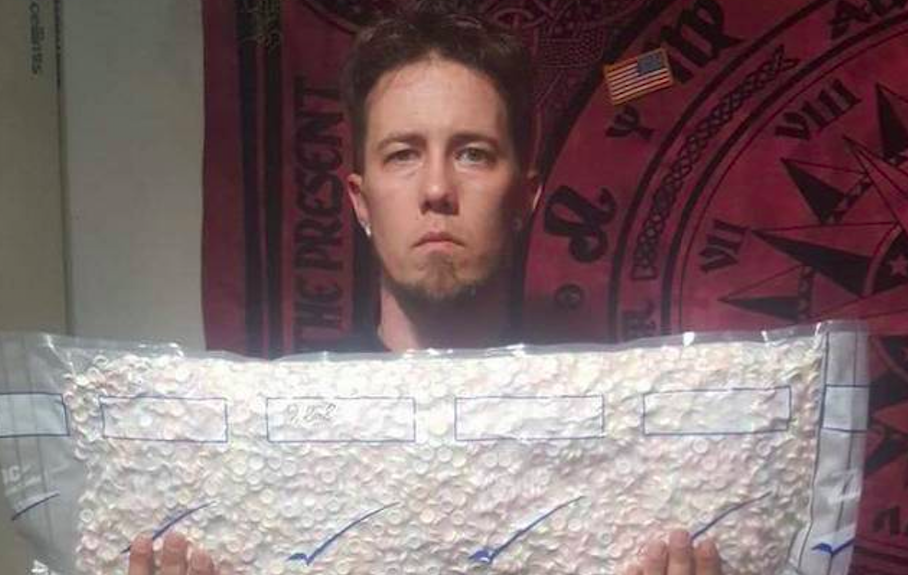There’s almost 10,000 of them.
They’re all stuffed into a clear plastic sack that’s so jam-packed it makes holding it a strange chore. It kind of looks like one of those sandbags they use to protect beachfronts from an inevitable ocean surge, via a hurricane. The wife of military veteran Joshua Lee a photograph of him cradling the dang thing — flashing it to the internet, to make a point.
Each one of them, inside, represents a pill the former disabled service member has to ingest — over the course of a year — to deal with the numerous painful maladies he accrued while serving his country overseas.
Them = Smarties. The peanut-free, gluten-free, fat-free, dairy-free dextrose “tablet” candies that come in those pastel easter egg colors, wrapped together in a package that resembles a super mini Italian sub sandwich, if it were the size of a thimble .
The analogy/statement not only works in the way of a powerful visual (through Lee’s Facebook post, the image has been shared thousands of times), it has a history. Smarties came into existence after a group of people in New Jersey, the Dee family, purchased World War II pellet machines and repurposed them to make the candies.
Of course, the vet didn’t spend days unwrapping minuscule baggies with his wife to reach their goal of singling out 9,828 of them to sell or market the sweets themselves. He was trying to advocate for something different entirely.
Medical marijuana: its ability to ween veterans like himself off of powerful opioids and other medications.
“My medication schedule is a handful in the morning, six or eight at noon and another handful in the evening.”
“On a daily basis, I’m munching opiates, narcotics, muscle relaxers, anti-depressants, anti-anxiety, anti-psychotics. Oh, and let’s not forget, I need pills to control the side effects of the first pills.”
“I’m tired, boss. I’m so … damn … tired.”
More from the Sacramento Bee:
Lee had never given marijuana one thought or another. But he and his wife, a licensed professional counselor, started reading medical studies online. Then, for their 15th wedding anniversary last month, they drove to Colorado Springs for a weekend. And Lee tried pot.
“Honestly, for the first time in a long time, I felt like my old self again,” he said.
Good enough, he said, “where I could potentially be good to my family again.”
Besides that, he just wants to get off the pills.
About 60 percent of veterans returning from deployments in the Middle East, and 50 percent of older veterans suffer from chronic pain, according to Veterans Affairs officials.
The vet’s simple, yet evocative idea only cost him about 60 bucks in candy. And what started as a cool thing to post to get his Facebook buddies chattering has turned into a viral sensation that’s given him a mission. He’s an activist now — with a purpose. Recently, he lugged the bag to a city council meeting in Missouri in a push to get medical marijuana legalized in Missouri (it would join 26 other states and Washington, DC). He’s also joined a bunch of likeminded groups, like the Missouri Cannabis Industry Association and Project 22.
And while two efforts have already been squashed in the Show-Me-State in this calendar year, the old military mechanic isn’t dissuaded.
He’s committed.
“My military training did not train me to run, to crawl away.”
“It trained me to stand up.”




































